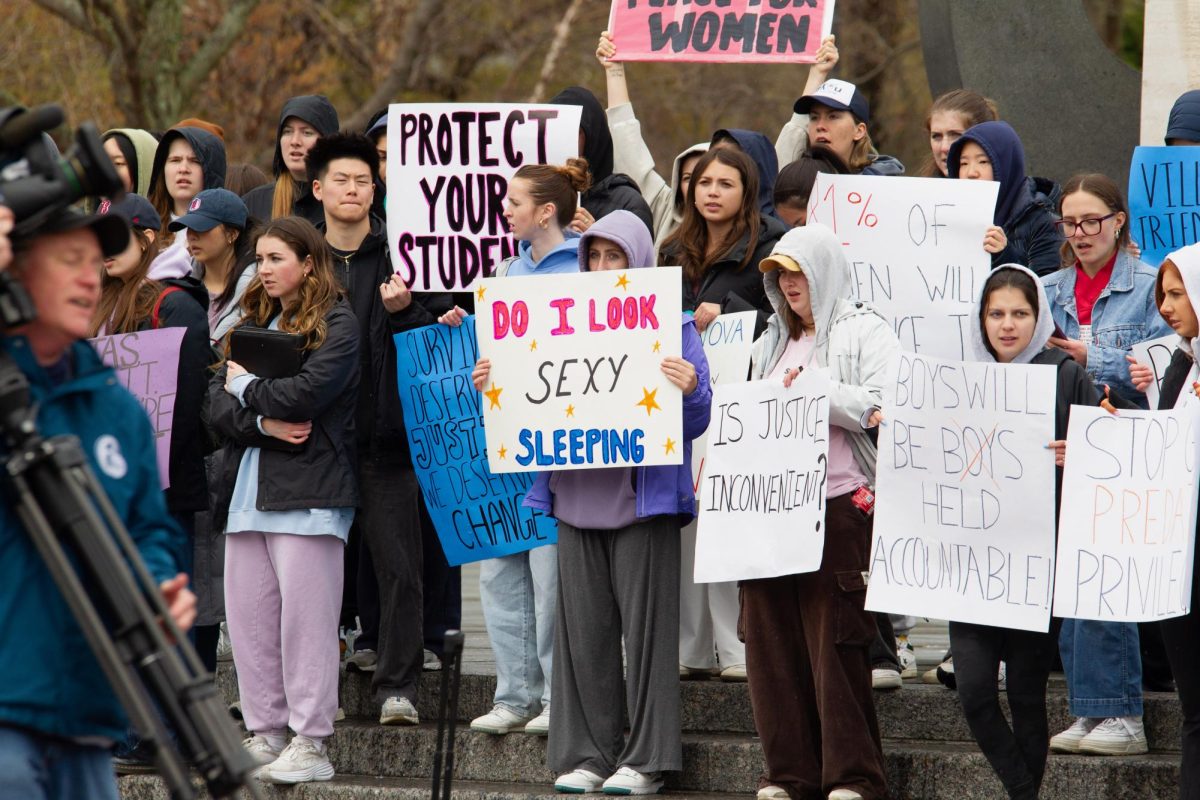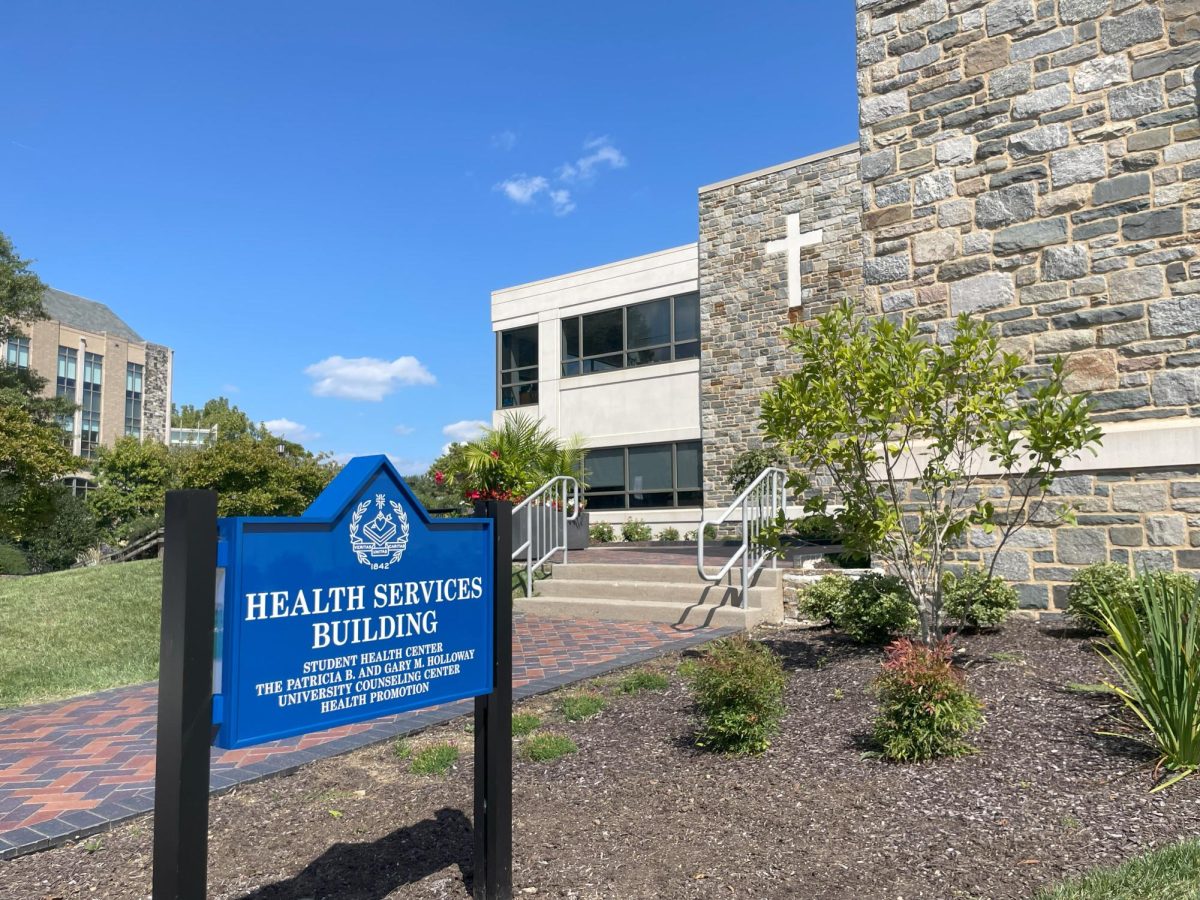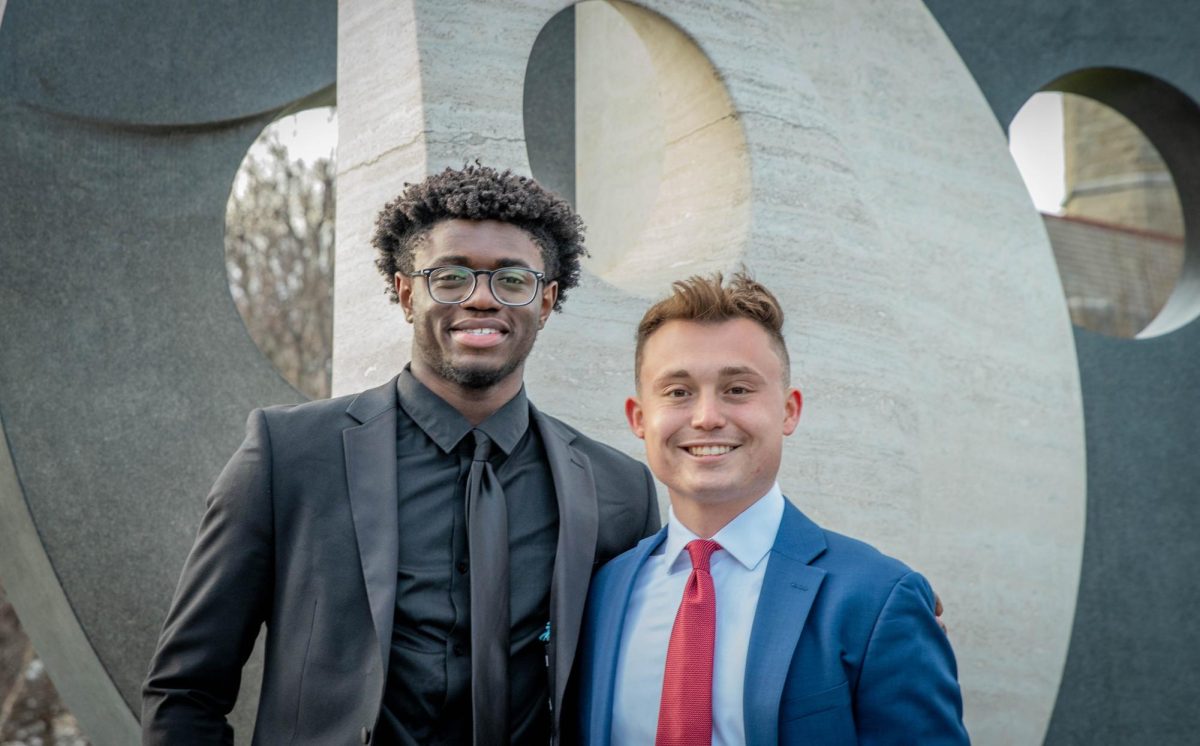Content warning: mentions of sexual abuse, sexual abuse in a church setting, and childhood trauma
Last Monday, Nov. 11, Villanova hosted pediatrician and child advocate Sandra Hassink, MD. Hassink discussed the treatment of children within the Church and how unhealthy settings impact children’s development.
Hassink attended medical school at Vanderbilt University School of Medicine and has published numerous articles. She focuses specifically on childhood obesity and how pediatricians and their environment treat children suffering from obesity. This discussion delved into the traumas children face within the Church and how fundamental change that truly recognizes children has yet to occur.
Hassink began the presentation with stereotypical ideas of what children are and represent, such as the Dionysian and Apollonian child. The Dionysian child possesses intrinsic evil, connecting back to the concept of original sin found in Christianity. The child is reformed through moral training throughout their life. Contrastingly, the Apollonian child is seen as angelic and who offered their parents a source of existential meaning, a sort of healing from their suffering.
Historically, children have been seen as “becoming” and “not yet adults,” as if they were not human until adulthood. This has prompted children to be constantly overlooked by society, while they are often the most affected by issues such as climate change, poverty and abuse, leading to physical, mental and emotional implications. Despite the various environmental and economic instability in a child’s life, all that is needed to prevent further unregulated chronic stress is one nurturing adult.
Children can experience what is known as Adverse Childhood Experiences or ACEs, consisting of maltreatment, prejudice, traumatic deaths, torture and more. The more ACEs, the more implications there are on the child’s health, such as obesity, cancer, mental illness and substance use.
Institutions tasked with nurturing and protecting children often play a critical role in mitigating the effects of such trauma. This raises a critical issue regarding how the Church, often seen as a moral refuge, views and treats children. Despite the compassion Jesus showed children, the Church is more so influenced by current-day society’s approach to children. Abuse within the Church can cause individuals to feel a loss of childhood, abandonment by God, and their trust ruined by one who represents God and the Church. These priests who were child sexual abusers are coined as “soul-murders” by their victims, who have a lack of selfhood and core relationships.
Hassink explores potential solutions to address this crisis, focusing on producing change in how the Church regards a child’s dignity and human rights. This includes training to develop a new culture centered around caring for victims, providing compensation, acknowledging past mistakes and offering public apologies.
Such a topic begs to call upon “the Body of Christ” – what it represents and how that affects how children are seen. Scholars still wonder what Paul meant by the “Body of Christ” in the Bible and since then, there have been multiple applications. There is an idea of a mystical body, that each individual has a relationship with Christ through God’s spirit. The idea of it being a physical body, in which the church is the Body of Christ, and that each believer represents an organ or limb. Lastly, it has been interpreted to mean a metaphorical body, where the church is a corporate identity and the body promotes ethical behavior and community.
For the church to embody the Body of Christ it would require that children’s sufferings were recognized and acted on, for children to be recognized as a vital part of the church, and consider Jesus’ incarnation as a child.
Dr. Sandra Hassink’s presentation highlighted a pressing need for systemic change within the Church and society to prioritize the dignity, well-being, and rights of children. By addressing the traumas and adverse experiences many children endure, Hassink called for a collective reevaluation of how children are viewed, treated and protected.







